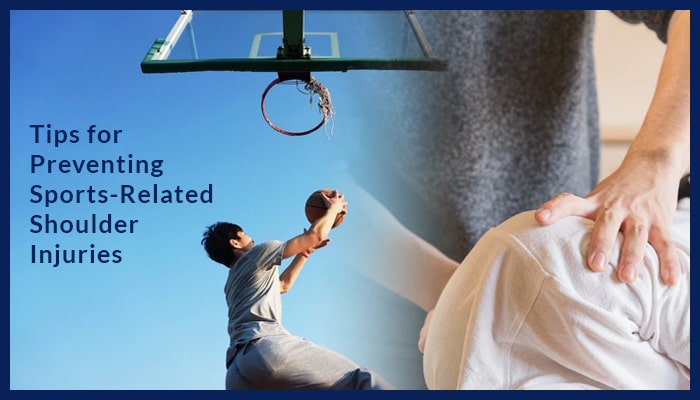Engaging in sports and physical activities is a fantastic way to stay fit and have fun. However, it’s important to keep safety in mind, especially when it comes to your shoulders, which are prone to injuries. In this comprehensive guide, we’ll explore valuable insights and practical tips for preventing sports-related shoulder injuries. I’ll share my expertise and firsthand knowledge to help you stay in the game without the fear of injury.
Understanding the Shoulder
Before we dive into the prevention tips, it’s crucial to understand the complexity of the shoulder joint. The shoulder is a ball-and-socket joint that offers a wide range of motion. It’s also one of the most mobile and unstable joints in the body. This combination of mobility and instability makes it vulnerable to injuries.
Shoulder Strengthening Exercises
Rotator Cuff Exercises
To prevent sports-related shoulder injuries, focus on strengthening the rotator cuff muscles. These muscles play a significant role in stabilizing the shoulder joint. Simple exercises like external and internal rotations with resistance bands can help.
Dumbbell Presses
Incorporate dumbbell presses into your workout routine. These exercises build shoulder strength and stability, reducing the risk of injuries.
Proper Warm-up and Stretching
Warm-Up Routines
Always begin your sports activities with a proper warm-up routine. Light cardiovascular exercises, such as jogging or jumping jacks, can increase blood flow to your shoulder muscles and prepare them for more intense movements.
Stretching
Don’t forget to stretch your shoulder muscles. Perform dynamic stretching exercises like arm circles to improve flexibility. This helps to prevent muscle strains and tears during sports.
Correct Technique
Perfecting Form
When participating in sports, it’s vital to use proper techniques. Incorrect form can put unnecessary stress on your shoulders, leading to injuries. If you’re unsure about your form, consider hiring a coach or seeking professional guidance.
Rest and Recovery
Listen to Your Body
One of the most crucial aspects of preventing shoulder injuries is to listen to your body. If you feel pain or discomfort in your shoulder, it’s essential to rest and allow your shoulder to recover fully. Ignoring pain can lead to more severe injuries.
Shoulder-Friendly Sports
Choose Wisely
Select sports that are less likely to cause shoulder injuries. Low-impact activities like swimming and cycling are excellent options. If you prefer high-impact sports, make sure to follow all safety guidelines and use proper gear.
Protective Gear
Gear Up
Wearing appropriate protective gear is a must, especially in contact sports. Shoulder pads, helmets, and other protective equipment can significantly reduce the risk of injuries.
Conclusion
Preventing sports-related shoulder injuries is not only about staying physically fit but also about understanding your body’s limits. By following these tips and guidelines, you can significantly reduce the risk of shoulder injuries and enjoy your favorite sports safely.
FAQs
Q: How can I tell if I have a shoulder injury?
A: Common signs of a shoulder injury include pain, swelling, limited range of motion, and a clicking or popping sensation. If you experience any of these, consult a medical professional.
Q: Can I continue playing with a minor shoulder injury?
A: It’s not recommended. Playing through the pain can worsen the injury. It’s best to rest and seek medical advice.
Q: Are warm-up exercises really necessary?
A: Yes, warm-up exercises are essential. They prepare your muscles and reduce the risk of injury during sports.
Q: What’s the most common sports-related shoulder injury?
A: Rotator cuff injuries are among the most common sports-related shoulder injuries.
Q: How long should I rest after a shoulder injury?
A: The duration of rest depends on the severity of the injury. Consult a healthcare professional for personalized advice.
Q: Can I prevent shoulder injuries with just exercises?
A: While exercises are crucial, combining them with proper technique, rest, and protective gear is the most effective way to prevent shoulder injuries.






